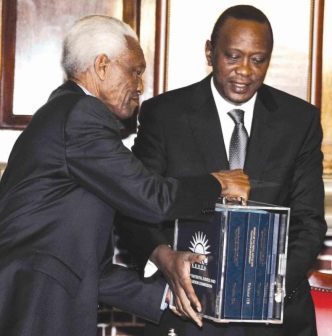×
The Standard e-Paper
Join Thousands Daily

Two logical premises and one firm conclusion define the late Bethuel Kiplagat’s tortured tenure at the helm of the Truth, Justice and Reconciliation Commission (TJRC).
Kiplagat was a true Kenyan. True Kenyans do not resign from public offices. There was no way Kiplagat was going to resign. For three long years, the old man with a long, grey push-back hair kept everyone, including fellow commissioners, in suspense, and hoping against hope that he would resign from the commission and salvage the truth process.